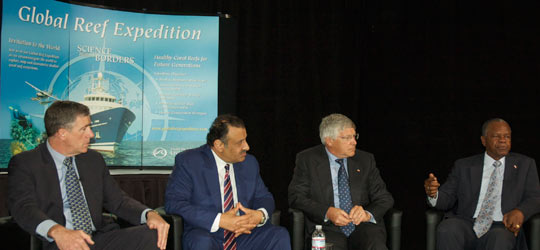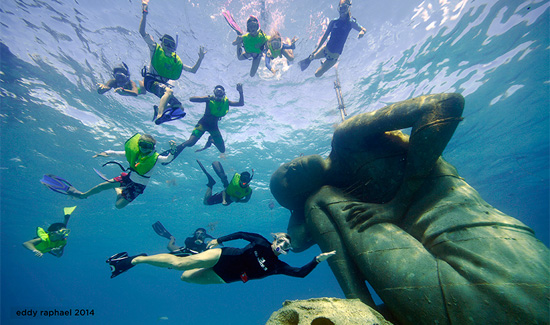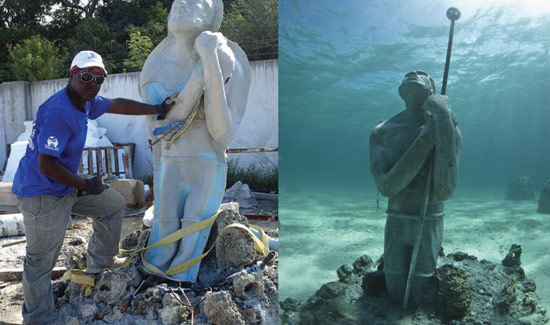
Minister of the Environment Earl Deveaux, recently thanked the Living Oceans Foundation for supporting the Government’s efforts to foster environmental awareness and stewardship through implementing scientific research in The Bahamas.
“Your Excellency, while I might do it again later, I can’t over emphasize the gratefulness of The Bahamas for the work you have done … It will be enormous,” he told Prince Khaled bin Sultan, of Saudi Arabia, chairman and president of LOF.
He said also that for the Bahamians, it wouldn’t have been possible without Ian Fair and Eric Carey collaborating to get the government to invite Prince Khaled bin Sultan to the country.
“And, I can’t underscore the importance of The Bahamas’ archipelago to the Caribbean Sea,” said Minister Deveaux. “We have the fourth largest island in the Caribbean, which is Andros. It washes over the Great Bahama Bank and that area feeds and populates the marine ecosystems, by virtue of being on the east side, closest to the deepest water in the Caribbean and on the west side some of the shallowest expansive water. So, the work you have done here in The Bahamas is going to inform science enormously for the Caribbean,” he said.
And, thanking the Bahamian Government for inviting him to provide accommodations and a mobile research lab to nine Bahamian scientists studying ocean activity, Prince Khaled pledged to support the efforts of the Bahamas National Trust (BNT) with the resources of the LOF.
“We are determined to accomplish this five year project or it could be even more. We don’t know. We would always revise the schedule until we get it right. We are hoping to go anywhere we are invited to participate particularly, and our luck to reaffirm the Bahamian Government for all the cooperation and assistance we received here,” said Prince Khaled.
He recalled three reasons why the Board decided — a year and a half ago — to start their global expedition in remote areas of The Bahamas and attributed the launch of the global expedition to the Foundation’s immeasurable good luck.
“As you know the ship is in the Mediterranean, and based on the cooperation we felt was coming from The Bahamas, and the route, which can be ideal for us to go around the world, and to have The Bahamas, as our first base to experience our protection of the reefs in The Bahamas,” said the Prince.
“We felt the feedback from The Bahamas and the seriousness of protecting the reefs. We felt that it gives us the decision to make The Bahamas, as the first country, and to learn here and improve the future, when we go in this five-year plan globally.”
Since April 2011, nine Bahamian scientists, associated with the Bahamas National Trust (BNT) and the Nature Conservancy participated in the “Science Without Borders” coral reef research. It is part of a global expedition to study coral reef communities in Cay Sal Bank, Inagua, Andros, and Abaco and compare the results with a list of 25 Small Island Developing States (SIDS).
Heading to study Jamaican coral reefs, LOF is now equipped with Bahamian science and seafloor maps to compare and contrast information with other global SIDS, that are regionally impacted by overfishing, overdevelopment, and climate change.
By Gena Gibbs
BAHAMAS INFORMATION SERVICES



